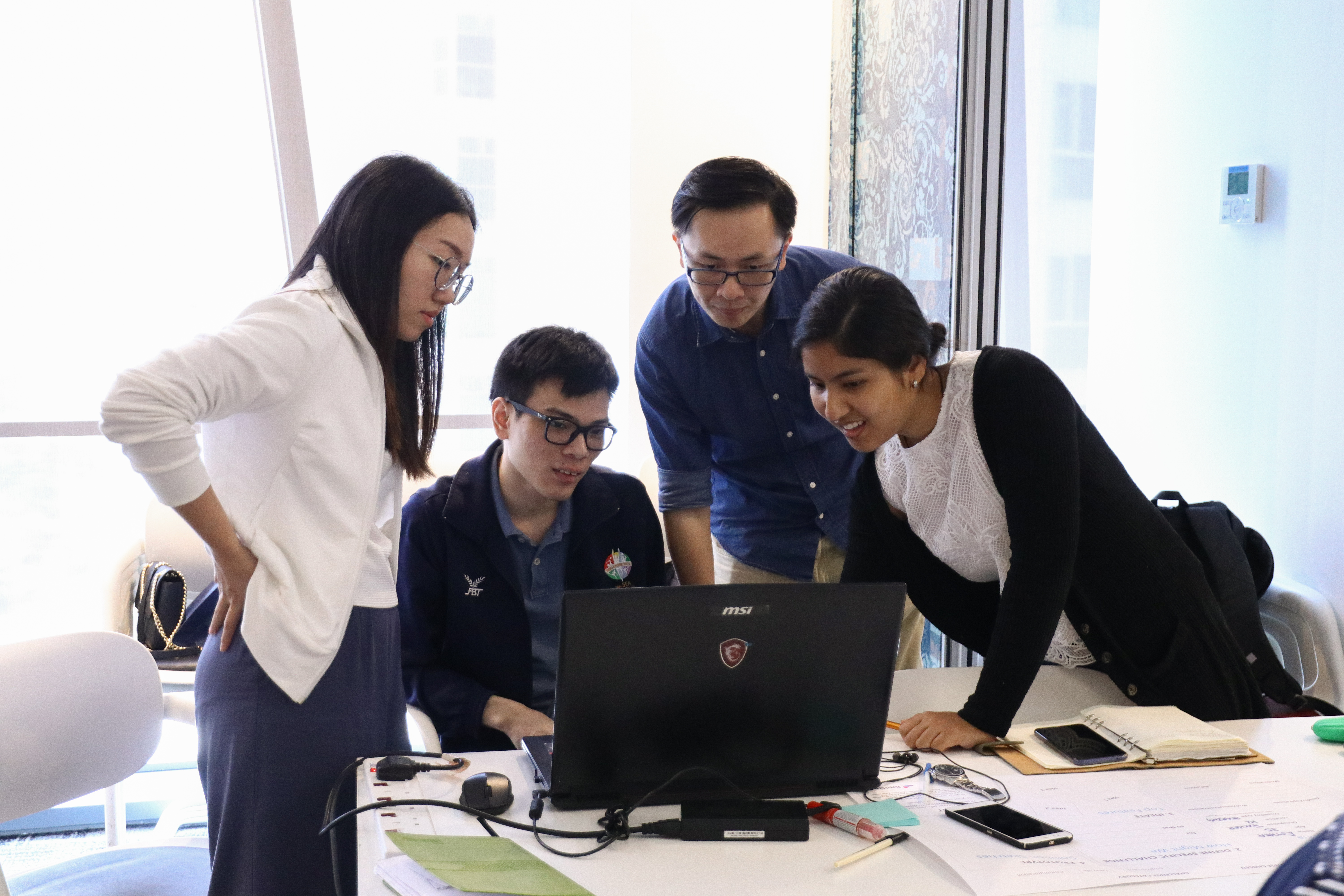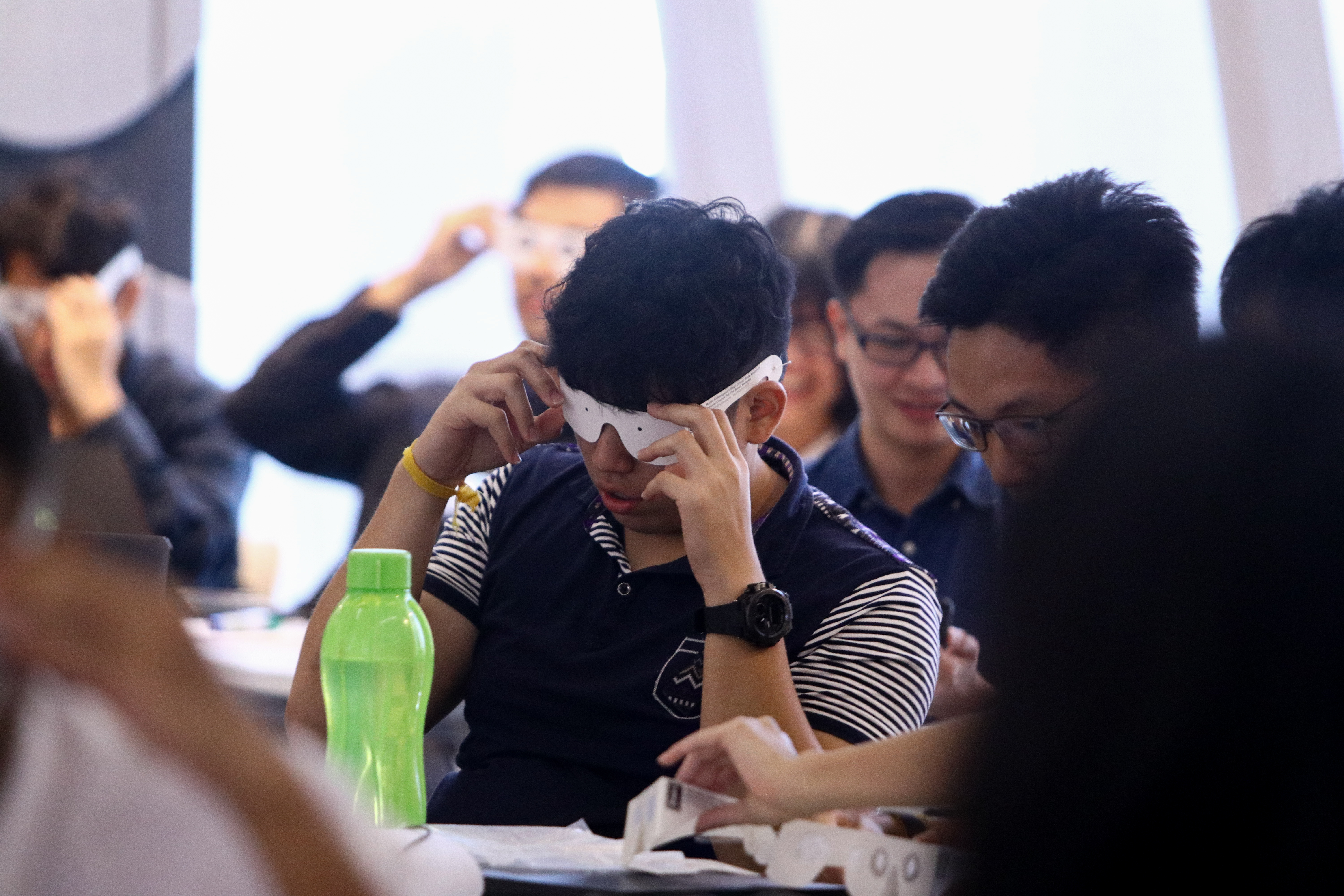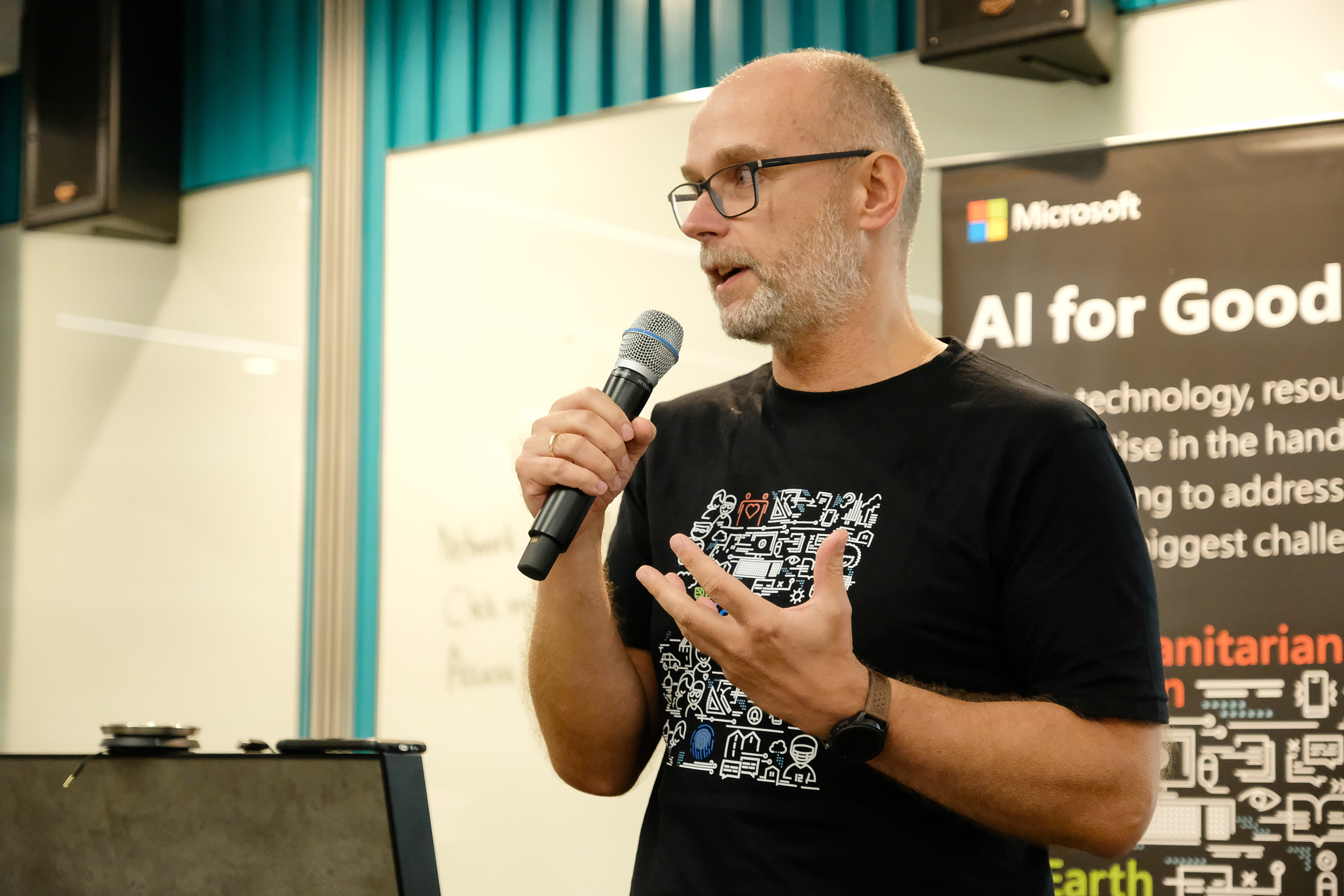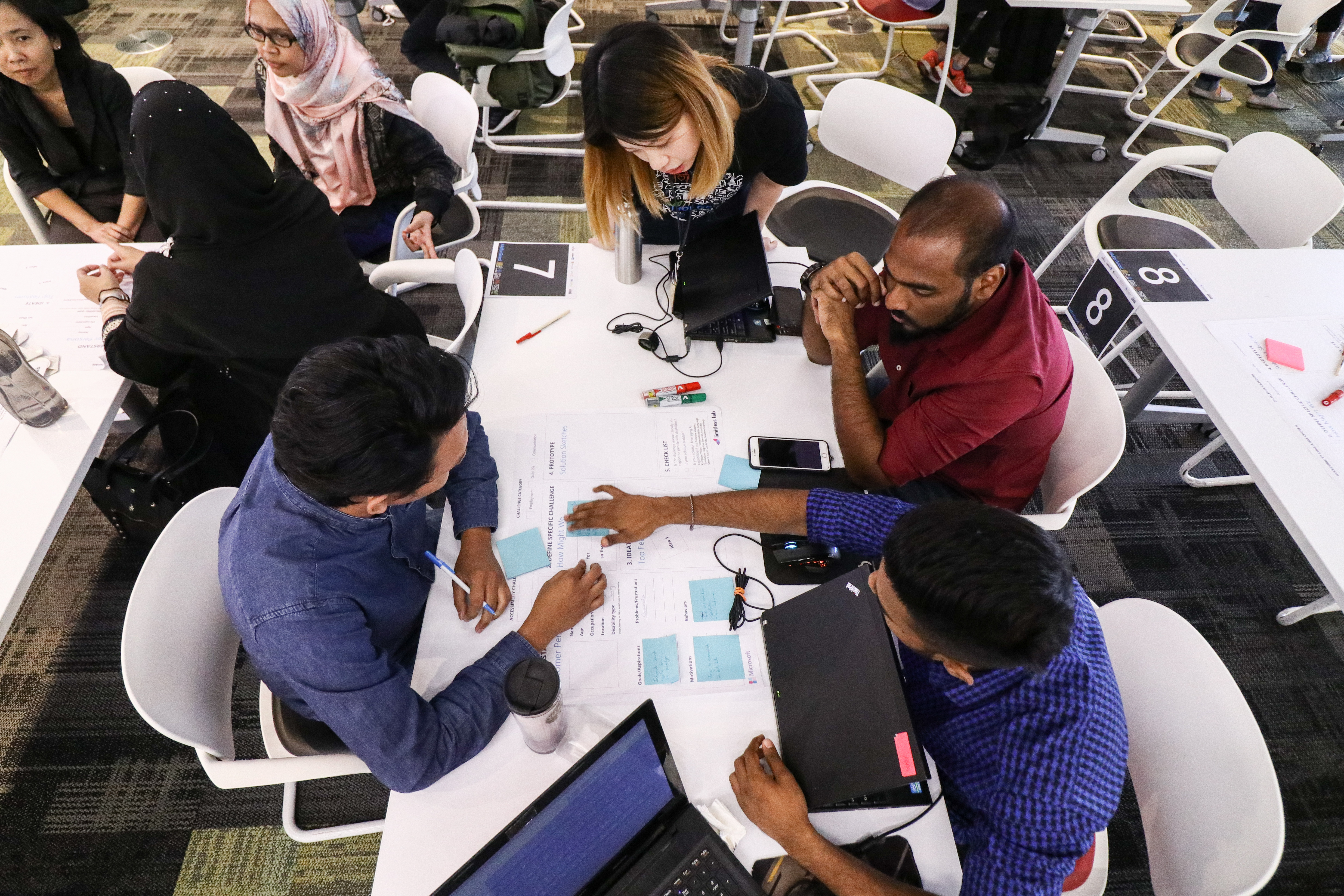- Held concurrently across Asia Pacific, the Hackathon saw over 400 participants in eight countries brought together to conceptualize and prototype AI solutions that can transform the daily lives of people with disabilities
- The hackathon saw teams work together to tackle more than 23 different problem statements, with Malaysia focusing on challenges relating to the deaf community
- Participants also tried on masks with small holes poked in them, to help them experience the challenges these people face
KUALA LUMPUR, 7 November 2019 – In a bid to create a more inclusive world using artificial intelligence (AI), Microsoft hosted its first-ever AI for Accessibility hackathon in Malaysia. The hackathon saw teams of IT professionals, university students and young developers working side-by-side with universities, international organizations, start-ups and non-profit organizations to tackle more than 23 different problem statements, identifying opportunities to use AI to build a more inclusive and accessible world.
The hackathon was held concurrently across Asia Pacific and saw over 400 participants in eight countries being brought together to conceptualize and prototype AI solutions that can transform the daily lives of people with disabilities.

In Malaysia, the teams worked on problem statements provided by the Malaysian Federation for the Deaf. Technology solutions were developed to address challenges relating to daily life, communication and employment challenges for the deaf community and people with hearing disabilities.
“There is a significant segment of the Malaysian population that are deaf or hard of hearing, many of whom do not rely on technology to assist in communication accessibility due to either a lack of awareness or because these solutions are unaffordable,” said Mohamad Sazali Shaari, Executive Director, Malaysian Federation of the Deaf. “Through the AI for Accessibility Hackathon, we hope to not only give talented Malaysian minds a chance to shine with their innovation, but to also find better and more affordable solutions that can help level the playing field for people with hearing disabilities.”
Among the winning teams was Team AI.D, which comprised representatives from Axiata, Monash and NXP. Together, they had developed an AI app that helps deaf individuals perceive their environment and be more aware, enabling them to respond and act to stimulus.
On the other hand, Team Smart Ears of XiaMen University developed a smart wearable that translates sign language to text and speech to text/sign language using emotion and sound detection, while Team IHearU which comprised of representatives from Abundent Sdn Bhd, BFM Media, Aizach Niaga Sdn Bhd, developed an AI application which provides Malaysian sign language interpretation through computer vision and machine learning.

The above prototypes, as well as the winning entries from each market, are eligible to apply for Microsoft’s AI for Accessibility grants, to bring their ideas one step closer to reality. The Hackathon was judged by a panel of experts from Microsoft and Universiti Kebangsaan Malaysia, as well as Mr. Amir Hamidi, the Deputy Director, Information Management Division (ICT) at the Ministry of Women, Family, and Community Development, who is deaf and mute himself.
The participants were also given a chance to feel what it is like to be visually impaired by wearing masks with small holes poked in them, to help them experience the challenges these people face and in turn, think of solutions that can be developed to help these people.

Commenting on the Hackathon was Dr. Faizal, Ministry of Human Resources Policy Division, “Malaysia is certainly heading in the right direction when it comes to technological development and digital transformation. But alongside development, there must be empowerment – especially for those who are differently-abled. In line with the government’s vision for ‘Shared Prosperity’, it is truly encouraging to see both private and public institutions work together in Hackathons such as this, for the betterment of Malaysian society as a whole.”

Dr. Faizal also spoke in a panel session the Hackathon, alongside speakers from the National Council of the Blind Malaysia and Universiti Kebangsaan Malaysia, where topics such as inclusivity and the challenges when it comes to employment of people disabilities were discussed in length.
The World Health Organization indicated that more than 1 billion people in the world today are in need of assistive technology, including low vision, hearing, mobility and even cognitive aids. An estimated 70% of people with disabilities have non-apparent disabilities, and these disabilities will affect everyone at some point in our lives, whether temporary, situational, or permanent. With 650 million people with disabilities in Asia Pacific alone, employment challenges are becoming a region-wide concern, with only 1 in 10 of these people having access or awareness with regards to the products they require to overcome their disability.

“We have the opportunity to bring about change at a grand scale, to create more inclusive classrooms and workplaces and to impact education and employment opportunities for people with disabilities,” said Michal Golebiewski, Chief Marketing Operations Officer, Microsoft Malaysia. “But this has to be a collaborative effort that involves the brightest minds in the industry. That is the underpinning idea behind the AI for Accessibility hackathon, which looks into how AI can empower people with disabilities with tools that support independence and productivity.”
In line with Microsoft’s mission to “empower every person and every organization on the planet to achieve more”, accessibility and inclusion are key focus areas for the company in the region, especially when considering the tremendous technological advancements made with AI and its significance in the immediate term.
Microsoft recently partnered with the Special Olympics Asia Pacific to launch SPROUT – an inclusive fitness application for people with intellectual disabilities (ID), developed to encourage them to lead active lifestyles. The app encourages users to exercise regularly by completing exercise routines, incorporating features including animated exercise videos, auditory cues and an accessible user interface.

